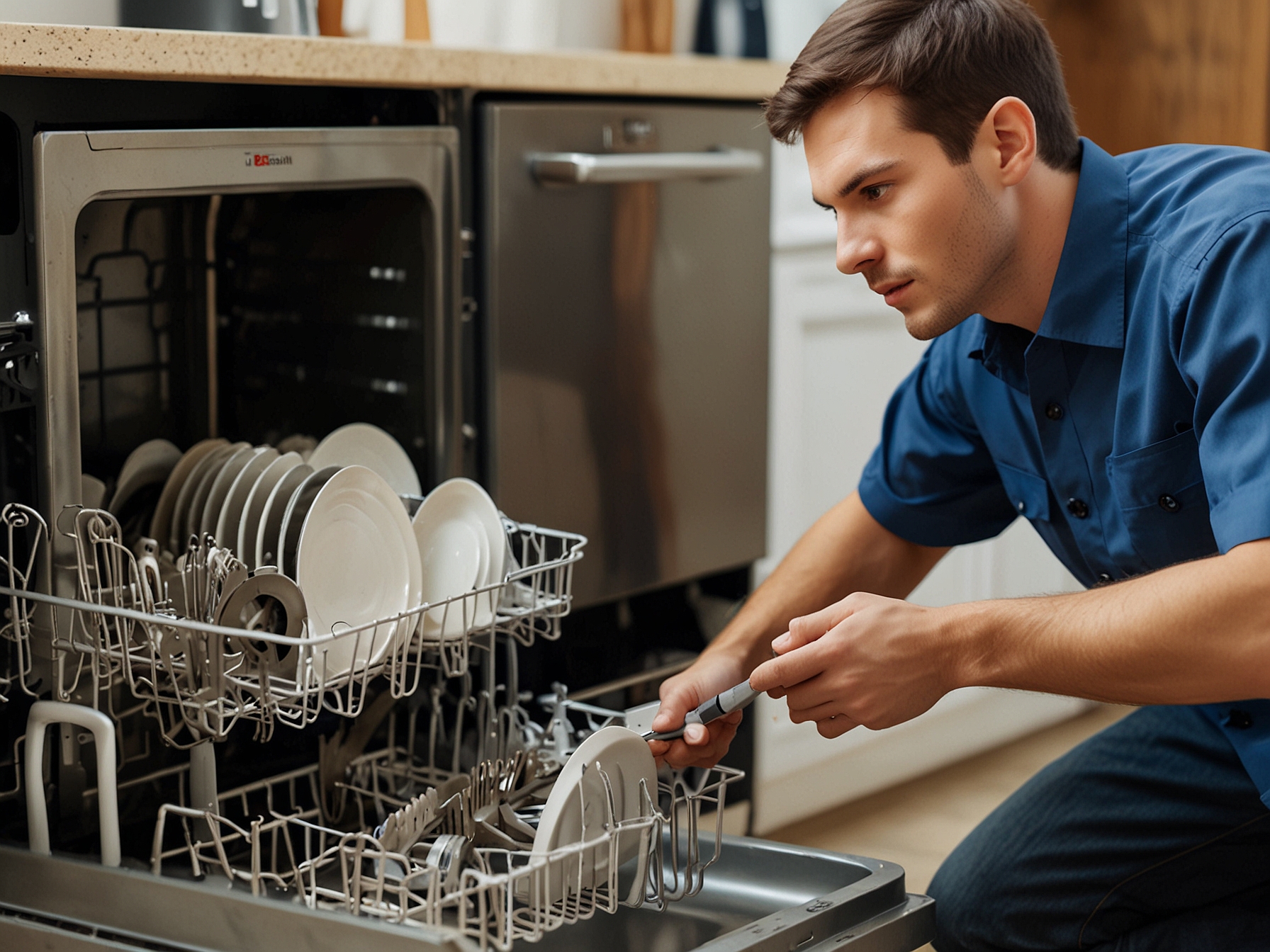Dishwashers are an essential appliance in modern kitchens, valued for their convenience and efficiency. However, not all dishwashers are created equal when it comes to reliability. Understanding the failure and malfunction rates of different dishwasher brands can help consumers make informed purchasing decisions. This article analyzes these rates across various brands, exploring the factors contributing to reliability and the implications for consumers.
Defining Failure and Malfunction Rates
Failure and malfunction rates in dishwashers are typically measured by the frequency with which they require repairs or exhibit performance issues within a given period, often the first five years of ownership. These rates can be influenced by several factors, including build quality, design complexity, and usage patterns.
Top Brands and Their Performance
Bosch is renowned for its high-quality appliances, and its dishwashers are no exception. Known for their quiet operation and efficient cleaning, Bosch dishwashers generally exhibit low failure and malfunction rates. Consumer Reports and other reliability studies consistently rank Bosch among the top brands, with a failure rate often cited around 10-12% within the first five years. Bosch’s emphasis on robust engineering and quality components contributes to its strong reliability record.
Miele is another premium brand known for its durable and reliable dishwashers. With a focus on longevity and performance, Miele appliances are designed to last up to 20 years. Despite their higher price point, Miele dishwashers have a low failure rate, often reported at around 8-10% within the first five years. This low rate is attributed to rigorous testing and high-quality materials used in manufacturing.
Whirlpool, a mainstream brand, offers a broad range of dishwashers that balance performance and affordability. Whirlpool dishwashers generally show a moderate failure rate, often around 15-18% within the first five years. While not as low as Bosch or Miele, this rate is still competitive within the market. Whirlpool’s extensive service network and warranty options also help mitigate the impact of malfunctions.
KitchenAid, a subsidiary of Whirlpool, is known for its robust and high-performing dishwashers. However, the failure rate for KitchenAid dishwashers tends to be slightly higher, around 18-20% within the first five years. This may be due to the advanced features and higher complexity of their models, which can increase the likelihood of issues. Nonetheless, KitchenAid maintains a strong reputation for customer service and support.
Samsung, known for its innovative and feature-rich appliances, offers dishwashers that appeal to tech-savvy consumers. However, Samsung dishwashers often report higher failure rates, around 20-22% within the first five years. The complexity and advanced technology integrated into Samsung models can lead to more frequent malfunctions, although the brand continuously works to improve reliability through software updates and design refinements.
LG is another brand that emphasizes technology and innovation in its appliances. LG dishwashers have a similar failure rate to Samsung, around 20-22% within the first five years. The advanced features, such as smart connectivity and specialized washing cycles, while appealing, contribute to the higher malfunction rates. LG’s commitment to customer service and repair options helps address these issues effectively.
Factors Influencing Failure and Malfunction Rates
Several factors contribute to the varying failure and malfunction rates among dishwasher brands:
- Build Quality and Materials
Brands like Bosch and Miele invest heavily in high-quality materials and robust engineering, resulting in more reliable appliances. Cheaper models or brands may cut costs on components, leading to higher failure rates.
- Design Complexity
Advanced features, such as smart technology, multiple wash cycles, and sensor-based operation, while convenient, add complexity and potential points of failure. Brands that offer simpler, more straightforward models often have lower failure rates.
- Manufacturing and Quality Control
Stringent quality control during the manufacturing process can significantly reduce the likelihood of defects and malfunctions. Brands with rigorous testing standards, like Miele, tend to produce more reliable dishwashers.
- Usage Patterns
How frequently and intensively a dishwasher is used can impact its longevity. Brands that are designed for heavy-duty usage often incorporate more durable components to withstand daily wear and tear.
- Maintenance and User Behavior
Proper maintenance, such as regular cleaning of filters and following manufacturer guidelines, can enhance the reliability of any dishwasher. User behavior, including correct loading and avoiding overloading, also plays a crucial role.
Implications for Consumers
When choosing a dishwasher, consumers should consider the balance between cost, features, and reliability. While premium brands like Bosch and Miele offer superior reliability, they come at a higher price point. Mainstream brands like Whirlpool provide a good balance of performance and affordability, with moderate failure rates. For those who prioritize advanced features and technology, brands like Samsung and LG offer innovative options but may require more frequent repairs.
Consumers should also factor in warranty coverage and customer service reputation when making a decision. Brands that offer extensive warranties and responsive customer support can mitigate the impact of potential malfunctions.
The analysis of failure and malfunction rates among different dishwasher brands highlights the importance of quality, design, and user behavior in determining reliability. While premium brands like Bosch and Miele lead the market with lower failure rates, mainstream and innovative brands also offer competitive options with varying degrees of reliability. By considering these factors, consumers can make informed choices that align with their needs and expectations, ensuring a reliable and efficient addition to their kitchen.
For any home appliance issues, reach out to us at HOME APPLIANCE SERVICE CENTER, the foremost Repair Service Provider in San Diego. Our unmatched performance, precision, expertise, and experience set us apart as the top choice for repairs. Our friendly approach, complimentary maintenance advice, and unbeatable after-service warranty enhance our appeal. With 24/7 availability, including weekends and holidays, and a 15-minute emergency response time, we’re here to address your concerns promptly. Don’t hesitate – call us, and HOME APPLIANCE SERVICE CENTER will resolve any problem.
Contact us
 619-928-5000
619-928-5000  Request Service
Request Service 
